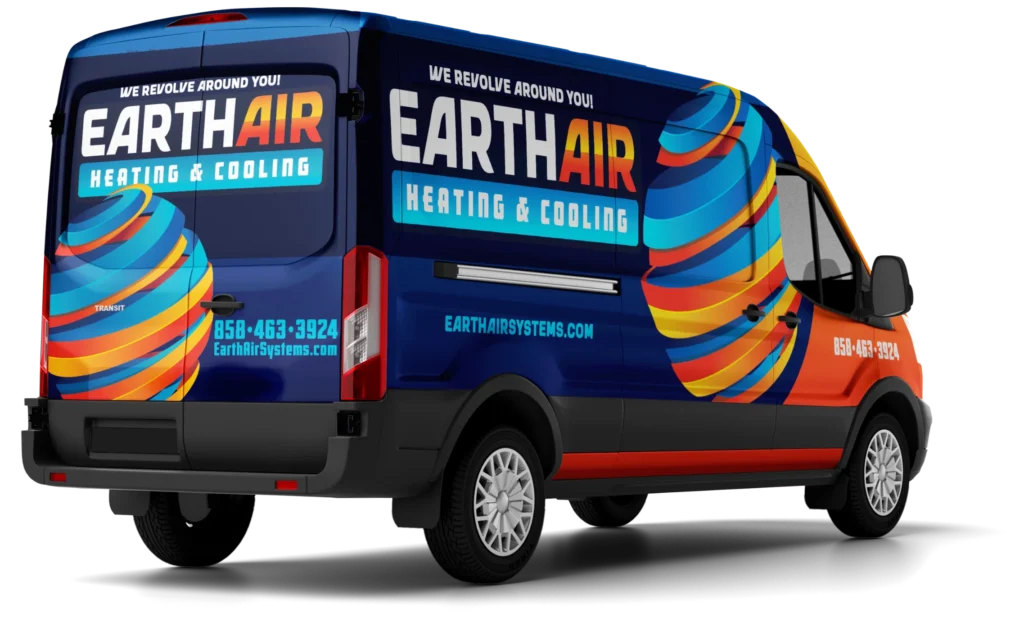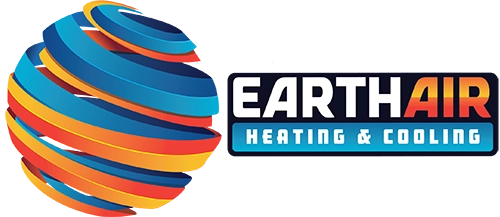Earth Air FAQ's
Find answers to the most commonly asked questions about our services!
Earth Air HVAC FAQ
HVAC stands for Heating, Ventilation, and Air Conditioning. It’s the system that helps regulate the temperature, humidity, and air quality in your home or business.
It’s recommended to have your HVAC system serviced twice a year—once before the cooling season (spring) and once before the heating season (fall).
Common signs include uneven temperatures, strange noises, weak airflow, foul odors, rising energy bills, and frequent cycling on and off.
With proper maintenance, most HVAC systems last between 15 to 20 years. Factors like usage, brand, and upkeep can affect lifespan.
Yes, there are several maintenance tasks you can perform yourself, such as changing or cleaning air filters every 1-3 months, checking and clearing the AC condensate drain line, and keeping the HVAC unit free of debris. However, more technical tasks should be left to professionals.
SEER stands for Seasonal Energy Efficiency Ratio. It measures the efficiency of an air conditioner—the higher the SEER, the more energy-efficient the unit.
This could be due to restricted airflow, low refrigerant levels, dirty coils, or a malfunctioning blower fan. A professional should inspect it.
A heat pump provides both heating and cooling by transferring heat, while a furnace only heats and typically uses gas or electricity.
Consider energy efficiency, system size, your home’s layout, your budget, and whether you want new features like smart thermostats or zoning.
Maintain your system regularly, use a programmable thermostat, seal air leaks, upgrade insulation, and invest in energy-efficient equipment.
Zoning divides your home into sections that can be heated or cooled independently, allowing more precise temperature control and energy savings.
AFUE stands for Annual Fuel Utilization Efficiency. It measures how efficiently a furnace converts fuel into heat. Higher AFUE means lower energy costs.
Improving indoor air quality can be achieved by regularly replacing HVAC filters, installing air purifiers or cleaners, maintaining proper humidity levels, and ensuring adequate ventilation to reduce pollutants and allergens.
Noise issues may be due to loose parts, debris in the vents, issues with the fan or blower, or an aging system that needs repair or replacement. It’s best to have a professional diagnose and remedy the problem to prevent further damage.
Ductless mini-split systems are HVAC systems that do not require ductwork. They consist of an outdoor compressor/condenser and one or more indoor air-handling units. These systems are ideal for room additions, small apartments, or spaces where installing ductwork is impractical.
If your HVAC system starts leaking water, turn it off immediately to prevent damage to your home. A common cause is a clogged condensate drain line or a damaged drain pan. Check your air filter as well — a dirty filter can cause coils to freeze and later leak.
It’s best to contact a licensed HVAC technician to inspect and fix the issue properly. Ignoring the leak can lead to mold growth, water damage, or even system failure.
High humidity levels can make your HVAC system work harder to cool your home, reducing efficiency and comfort. Using dehumidifiers and maintaining your AC properly can help manage humidity levels and improve system performance.
The ideal thermostat setting for winter is around 68°F while you’re at home and lower when you’re asleep or away from home. This helps to save on heating costs while maintaining comfort.
Air ducts should be inspected and cleaned every 3-5 years to remove dust, debris, and potential mold. This improves your HVAC system’s efficiency and the quality of your indoor air.
Yes, installing a smart thermostat can lead to significant savings on your energy bills. These devices allow for more precise control over your HVAC system, learning your schedule and preferences to optimize heating and cooling patterns accordingly.

About Us
We are Earth Air, and our primary mission is to fulfill all your heating and cooling needs while ensuring top-tier quality and complete customer satisfaction.
Our service team brings over 40 years of combined experience, rooted in a background that includes growing up in the construction industry and a strong foundation in military contracting. This diverse experience equips us to deliver reliable, high-quality results exactly when you need them.
As a local heating and cooling provider, we bring a personal, family-oriented touch to every service call. At Earth Air, we don’t consider the job done until you’re completely satisfied.
Our Mission
We believe that trust is earned by the quality of work you provide and the professionalism you finish your products. We pride ourselves in putting the customer’s needs first by listening exactly to what you need and combining it with our knowledge to provide the best possible outcome:
Your Feel-Good Temperature!

- We're proud to serve homeowners and businesses across San Diego, Escondido, and surrounding areas—and to be one of Southern California's most trusted names in AC installation, HVAC repair, and maintenance services.
- Feel free to find your nearest location or keep browsing to discover more about our services, exclusive offers, AC maintenance tips, and financing options.
- For help, schedule service online or call today.
